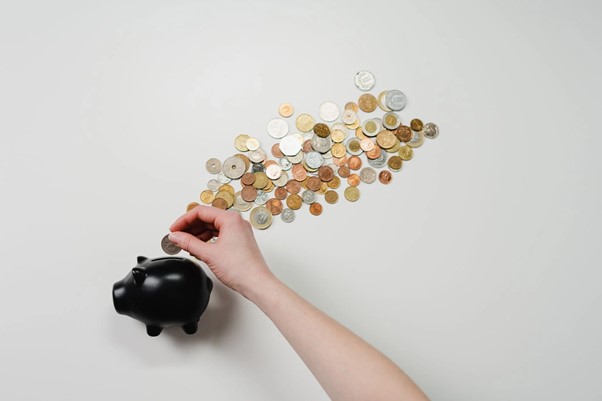If you are in a lot of debt, and you can no longer afford the required payments, then a statutory debt solution may be appropriate. Based on your circumstances, you can either enter an IVA or you can petition for your own bankruptcy.
An IVA is a formal agreement with your creditors, where you agree to make an affordable payment for a fixed period, usually five or six years. It requires 75% of your creditors who vote on it to approve the proposals.
Bankruptcy is a procedure where you complete an online application and pay the relevant fee. Once bankrupt, an Official Receiver or Trustee will look to sell your assets, in order to pay your creditors, although some assets are excluded, for example, reasonable household items or tools of trade. If you are able to make payments to your creditors, you will then be required to contribute for a period of three years. The bankruptcy will usually last 12 months, at which point you will be discharged, although in some cases it can be extended if you do not comply with the Official Receiver.
We're Here to Help YOU
Speak with Our Team of Debt Consultants.
Do you have questions or would you like more advice?
You can book an appointment with our team of debt consultants in minutes.
Just click the button to book your appointment today.
May not be suitable in all circumstances.Fees apply. Your credit rating may be affected.
What do Bankruptcy and an IVA Have in Common?
There are a couple of things that an IVA and bankruptcy have in common. Both will be recorded on your credit file, and this will be the case for six years from when it began. This may make it hard for you to take out additional credit.
Also, if you go for an IVA or bankruptcy, then you should know that both options will involve your details being placed on the individual insolvency register. This is an online database of everyone who is an undischarged bankrupt or has an IVA. This record is not permanent though, and three months after the solution has ended, it will be removed.
How will an IVA or Bankruptcy Affect My Employment?
Some jobs may not be affected if you are on an IVA or if you go bankrupt, however, insolvency can cause issues for those who work in law, property, finance or are company directors. The best way for you to find out whether an IVA or even bankruptcy would impact your job would be for you to check with your professional membership body. Bankruptcy is much more likely to affect you in your job when compared to an IVA, and it is also more likely to cause issues at a senior level too.

How will an IVA or Bankruptcy Impact My Home?
IVAs and bankruptcy will both have differing impacts on your home. This will largely depend on whether you rent it or own it. If you rent, then you should experience no effect, and you probably won’t need to move. If you go bankrupt when renting, then as long as you are up to date on your rent, you should experience no negative consequences. Some private landlords will include a condition in your agreement, and this means that you could well be asked to leave if you go bankrupt or if you take out an IVA.
If you own a home during an IVA, then you will not be forced to sell your home, but you may be asked to remortgage it around six months before your IVA ends. You will only have to remortgage if it is affordable. If you can’t then you may have to make 12 months of payments into the IVA. In bankruptcy, if you own your property, this will form part of your bankruptcy estate, and the Trustee will look to realise your interest; this is usually done by applying to court for an order for sale. If your property is in negative equity due to the property being worth less than the amount outstanding to the debts secured against it, then the Trustee may not sell the property. Alternatively, a Trustee may agree for a third party to purchase your interest in the property, to allow you to remain in the property.
Pros of Bankruptcy
If you do choose to go bankrupt, then you may be debt-free in as little as 12 months. You will usually be bankrupt for around a year, and then at the end, you can make a fresh start. This will benefit your mental health and may also benefit your physical health. You won’t have to worry about dealing with the stress that can come with paying your debt. You won’t have to deal with your creditors either.
A common misconception is that you have to give up all of your belongings. Certain assets are excluded from the bankruptcy, such as basic household items, and tools required for your trade. Only your possessions of value will be used to pay your debt, such as any property you own or a vehicle. Creditors cannot take any more action against you, and it won’t affect your partner either. The only reason why it would affect your partner is if you have joint debts. Many people worry that their partner will be dragged down by the bankruptcy, but they will only be impacted by the debt if the bankruptcy is joint or if there are joint assets that require selling.
Cons of Bankruptcy
You will not be in control of your finances when you go bankrupt. This means that the ownership of your home or any other assets will be in control of the Official Receiver or the Trustee, who are the people who will be dealing with your bankruptcy. Once your bankruptcy has been approved, you may have your bank account frozen. If you want to avoid this, then set up a basic debit account to pay your bills. You may also lose your home if you need to release equity to the creditors in question, however, this may not be the case if you are in negative equity, or a Trustee agrees for a third party to purchase your interest.
You may not be able to work in certain professions either. Some industries do not allow people who have gone bankrupt to work. This could involve working as a financial advisor, an insolvency practitioner, in the police service or even in government. If you want to avoid potential complications, then you need to check your contract before you submit an application.
Pros of Entering an IVA
There are many pros that you can take advantage of when you enter an IVA. To start with, the IVA will be based on an affordable payment. You can also have your assets protected, although this will be subject to creditor approval. Creditors will no longer be able to contact you for payment and all legal and recovery action will stop. Interest and charges are frozen once the IVA is approved and it is a legally binding arrangement.
Cons of Entering an IVA
If you enter an IVA, then this may impact your employment, so you should ensure you check your employment contract. It can also affect your credit rating and your details will be recorded on the individual insolvency register. In the IVA, you will have to work within the budget that has been agreed as part of your financial review. If you are a homeowner, you will need to attempt to release equity from your home, and if you are unable to do so, the arrangement will be extended by 12 months.
With an IVA, it will stay on your credit record for a total of six years as well, so it is very important that you keep this in mind. If you intend to apply for a mortgage or if you know that you are going to receive a lot of inheritance money in the near future, then you may want to delay this for some time, because any money you do get will have to be put towards your IVA to pay creditors in full, as well as any fees. Considering things like this will help you to make the best decision.
We're Here to Help YOU
Speak with Our Team of Debt Consultants.
Do you have questions or would you like more advice?
You can book an appointment with our team of debt consultants in minutes.
Just click the button to book your appointment today.


